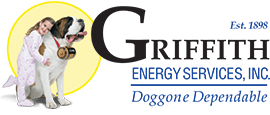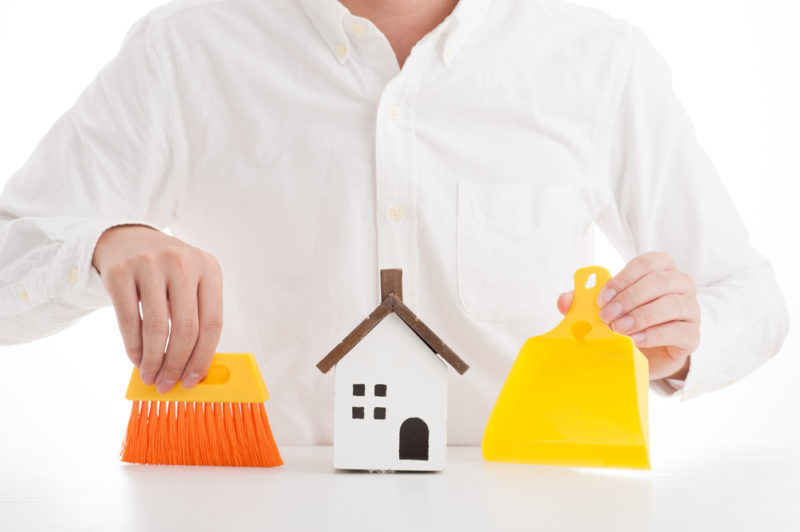There are a lot of pieces that keep your Columbia, Maryland, warm or cool throughout the year. Although keeping them working is always a priority, it’s also important to keep them clean.
Outside HVAC Unit
Make sure to keep dirt, debris, and animals out of your outdoor HVAC unit. Whether or not your outdoor needs a cover is debatable. Even if you choose to cover your outdoor system, you still need to check it to make sure that rodents haven’t climbed in, especially during the winter to keep warm. If you don’t cover your system, it’s essential to do a visual inspection of it regularly to check for animals, sticks, or accumulated dirt or debris.
About once a year, you should clean your air conditioner if you’re comfortable doing so. If for any reason you’re uncomfortable, then hire an expert. You can clean your air conditioner on your own by unplugging the air conditioner and using a hose to spray down the unit. Cleaning with a coil cleaner will also help to make sure your air conditioner is clean. A clean air conditioner helps to prevent breakdowns and improves the efficiency of the unit as well.
The most important time to check your outdoor unit is after a big storm or during the changing seasons. After heavy rains, check to make sure that no branches or large sticks have come down into your unit. Also, check for any electrical damage if its an especially severe storm. Turn off and unplug your unit and clean out any debris that has come down as a result of the storm.
During the winter, don’t let a lot of snow accumulate on top of your outdoor unit. Although these systems are made to withstand typical outdoor weather, you don’t want to risk damage by having it buried under a foot of snow all season. After a big snow storm, it just takes a couple of minutes to wipe off your unit to keep snow from accumulating all season long.
Preventive Maintenance
One of the best ways to keep your HVAC unit clean is to invest in a preventive maintenance plan with your HVAC company. You can schedule this maintenance before the busy seasons to make sure your system is ready to go before it’s working in overdrive to heat or cool your home. Annual maintenance is recommended for every type of HVAC system including your furnace, heat pump, or air conditioner. Even if you have a ductless system, you should still invest in annual maintenance to help sustain the life of your system.
This type of maintenance is beneficial to keeping your unit clean because the technician will change out your air filters and clean the evaporator and condensing coils. Other benefits of these agreements include having testing done on the blower, heat exchanger, ignition system, burners, circuit boards, contractors, defrost controls, fan motor, and the compressor. The technicians will also recalibrate the thermostat, and check other components of your system to make sure it’s operating as efficiently as possible. Keeping your system maintained will also prevent poor IAQ by making sure the filters and clean.
Air Filters
Even between preventive maintenance, it’s important to check that your air filters are clean. Your filters are what separates the air that is blown out of your system from what you breathe in your home. All it takes is one look at a dirty air filter to realize its importance. When your air filter is functioning correctly, it will keep dirt, debris, dust, and bugs out of your home. When your screen starts to get dirty or clogged, then you’re looking at several issues.
The first issue of a clogged air filter is that air gets pushed through all that dirt and debris on its way into your home. Your air quality will start to suffer, and you will see more dust accumulate throughout your home. Another issue with dirty air filters is that it makes your system work harder to push air into your home. This forces your system to use more energy and makes it more susceptible to wearing down or even breaking down when the air filters aren’t cleaned or changed regularly.
Dryer Vent Cleaning
Although it’s not technically part of your HVAC system, it’s an essential component of your home that you need to keep clean. Make sure to clean out your lint trap every time you use it. Pay attention to any signs that your dryer vent is clogged. You will start to notice that your clothes take longer to dry, the top of the dryer gets abnormally hot, or they don’t dry completely. If you see any of these issues, it’s probably best to get your dryer vent professionally cleaned.
Your technician will remove the lint trap from your dryer vent and will use a snake brush to clean out the dryer vent. Your tech will also use a vacuum to clean your dryer vent further. With the right tools, your system won’t get damaged, and you will prevent any issues from a clogged vent.
While not having dry clothes is annoying, it’s dangerous to let your dryer vent get dirty and clogged. Thousands of fires occur every year from dryer vents. When the vent gets clogged, hot air gets trapped in the vent, and eventually, lint catches on fire. Don’t hesitate to call in your contractor to professionally clean your vent if you start noticing signs it’s clogged.
Ventilation System
Your ventilation system doesn’t necessarily need to be cleaned, but it does need to be working to keep your home clean. Ventilation is especially vital in high-humidity areas like your kitchen and your bathroom. Your ventilation system makes sure that smoke and excess water don’t stay in your home.
Smoke can cause poor indoor air quality and stain the walls of your home. High humidity and excess water can cause mold and mildew to grow. Mold and mildew look bad and can also be dangerous. When you have mold growing in your home, it can cause multiple health issues for your family. Once mold starts, it’s also hard and often expensive to get rid of
Make sure your ventilation system works in both the kitchen and the bathroom, and make sure everyone in your family knows to turn it on when they are cooking in the kitchen or taking long showers or baths in the bathroom.
Other Aspects of HVAC
Air quality is directly related to your HVAC system and paying attention to it is essential to your family’s health. A dusty home is one of the first signs of poor IAQ. Other symptoms include health concerns for your family like headaches, watery eyes, sneezing, and coughing. Pay extra attention to your indoor air quality during the summers and the winters. During the hot summers and the cold winters, people tend to stay inside more and breathe the recycled air. That’s when you need to double check your air filters often to make sure they aren’t dirty or clogged.
Make sure you use your ventilation system correctly also to combat poor IAQ. Having specific houseplants in your home can also help to improve your air quality. During the milder days, try to keep your windows open and fresh air coming through the house. If you have pets, make sure to brush and bathe them regularly. Also, sweep carpet and mop floors to keep out extra dirt and dust. Finally, consider investing in a higher quality air filter for your HVAC system if you notice signs of poor IAQ.
If you think IAQ could be a problem in your home, consider bringing in your HVAC contractor to have your air quality professionally tested. Having your IAQ tested will let you know if it’s a concern for your home, and you will also learn techniques to implement to improve your IAQ. The improvements might just be small things. If you have a family member with asthma or other respiratory concerns, you might end up wanting to make more significant investments in your air quality.
If you have questions about keeping your HVAC components clean, or you need service on your system, we are the experts to call. Contact Griffith Energy Services at 888-474-3391 to speak with an experienced professional today.
Image provided by Shutterstock




